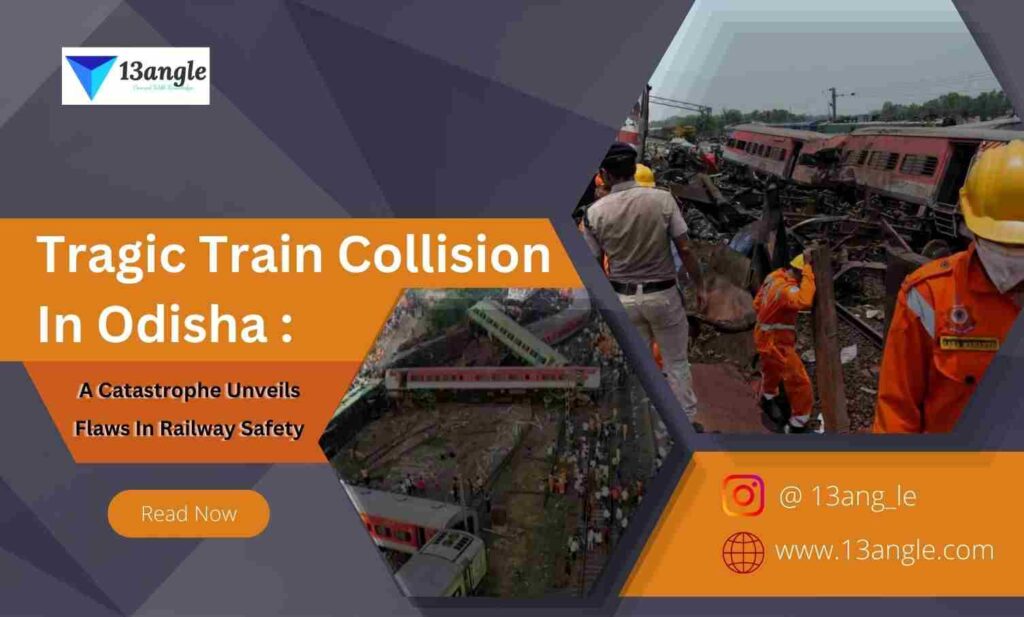Introduction:
The tragic train collision in Odisha has left a lasting impact on our collective conscience, reminding us of the grave consequences of neglected safety measures. The incident claimed the lives of innocent passengers and caused injuries to many others. As we mourn the loss of these precious lives, it is imperative to reflect on the human cost of such accidents and take immediate actions to prevent future tragedies.
- Advertisement -
Honouring the Victims:
Each victim of the Odisha train collision had a story, dreams, and loved ones who are now left grappling with grief and loss. It is crucial to remember and honour their lives, recognizing that their deaths were preventable and should serve as a catalyst for change. The victims should not be reduced to mere statistics but should be remembered as individuals who deserve justice and a commitment to ensuring a safer rail system for all.
Neglected Safety Measures:
- Advertisement -
The Odisha train collision exposes the long-standing issue of neglected safety measures within our railway infrastructure. It raises questions about the adequacy of maintenance, training, and investment in technologies that can prevent such accidents. It is evident that a lack of proper inspection, infrastructure upgrades, and a safety-centric approach have contributed to this tragic event.
Importance of Safety Investment:
To prevent future tragedies, it is crucial to prioritize safety investments in the railway sector. Adequate funding should be allocated to modernize and maintain tracks, signalling systems, and communication networks. Regular inspections and repairs must be carried out to identify and rectify potential safety hazards. The lives of passengers should be valued over cost-cutting measures, and safety must be the paramount concern.
- Advertisement -
Investing in Human Resources:
A well-trained and skilled workforce is the backbone of a safe railway system. The Odisha train collision highlights the importance of investing in human resources. Railway authorities must ensure that there are sufficient personnel and that they undergo comprehensive training programs. Continuous professional development, including scenario-based simulations and risk assessment exercises, can enhance the ability of railway employees to respond effectively to emergencies.
Embracing Technological Advancements:
- Advertisement -
Technological advancements play a vital role in ensuring railway safety. The adoption of automatic train protection (ATP), train collision avoidance systems, and real-time monitoring can significantly reduce the risk of accidents. Embracing innovations such as artificial intelligence and data analytics can help identify potential safety risks and enable proactive measures to prevent accidents.
- Advertisement -
Creating a Safety-Conscious Culture:
Beyond infrastructure and technology, creating a safety-conscious culture is crucial. Railway authorities should implement strict safety regulations and ensure their enforcement. Robust reporting and investigation mechanisms should be in place to identify systemic issues and take corrective actions. Regular safety audits and public disclosure of safety performance can foster transparency and accountability.
Conclusion:
The Odisha train collision has left an indelible mark on our society, reminding us of the profound human cost of neglected safety measures. It is essential to honour the victims by committing to change and preventing such tragedies in the future. Safety investments, both in terms of infrastructure and human resources, are imperative. Technological advancements must be embraced to enhance safety measures, and a safety-centric culture should be fostered through stringent regulations and public awareness campaigns. Let us remember the victims and work collectively to ensure that their lives were not lost in vain. The time for action is now, as we strive to build a railway system that prioritizes human lives and ensures a safe and secure journey for all passengers.







